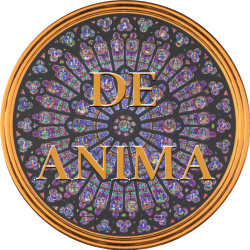Notícias
7 de fevereiro de 2024
NOVO CURSO: Transtornos de Personalidade na Terapia
— do diagnóstico ao tratamento.
Nós do Avante Psicologia, temos a missão de cada vez mais proporcionar conteúdo de valor para a formação e capacitação dos profissionais da saúde mental.
📅 Nos dias 17 e 18 de fevereiro, teremos um final de semana de imersão que acontecerá de forma híbrida (online e presencial).
Se você quer saber mais informações sobre o nosso curso e tudo que contém nele, clica aqui nesse link:
https://wa.me/5585999571265
2 de setembro de 2023
|
||||
|
|
||||
|
13 de junho de 2023.

Eis o que você encontrará no TI em junho:
6/1 Thomistic Institute – Londres
“Pessoas humanas e seus cérebros: uma abordagem católica à neurociência” pelo Dr. Daniel De Haan (Universidade de Oxford)
6/2 Thomistic Institute – NYC
“A Visão Bíblica da Sabedoria Divina” por Pe. Jordan Schmidt, O.P. (Dominican House of Studies)
6/5 Universidade de Oxford
“Como o conhecimento revelado é justificado? Tomás de Aquino sobre Fé e Razão” pelo Prof. Mats Wahlberg (Universidade de Umeå)
6/9 – Thomistic Institute – NYC
“A Virtude na Ação Humana” do Pe. John Baptist Ku, O.P. (Dominican House of Studies)
16/6 – 18/6 Glencomeragh House
“O Pensamento de São Tomás de Aquino | Um Retiro Intelectual para a Irlanda” com o Prof. Adam Eitel (Yale Divinity School), Pe. Conor McDonough, O.P. (Dominican House of Studies, Dublin) e Fr. Alan O’Sullivan, O.P. (Trinity College)
6/16 Thomistic Institute – NYC
“Limbo moral no local de trabalho: quão baixo posso ir?” Pe. Thomas More Garrett, O.P. (Providence College)
20/6 – 23/6 Stonyhurst College
“Verdade | Um Retiro Intelectual para o Reino Unido” com o Prof. Adam Eitel (Yale Divinity School), Pe. Conor McDonough, O.P. (Dominican House of Studies, Dublin) e Prof. Joshua Hochschild (Mount St. Mary’s University)
September 14-16
Washington, DC
18 de abril de 2023:
|
|
||||
|
O que é Causalidade Eficiente? |
||||
|
Não é fácil provar a existência de Deus apenas pela razão. Mas, é possível. Neste episódio, continuaremos nosso exame em três partes do “Segundo Caminho” no qual Tomás de Aquino demonstra a existência de Deus: o caminho da causalidade eficiente. |
||||
Vídeo do cursoPe. Cajetan Cuddy, OP
|
||||
Leitura 1Do Comentário sobre a Metafísica de Aristóteles, Bk. V, Lição 2
[Aristóteles] diz, portanto, primeiro, que em certo sentido o termo causa significa aquilo de onde uma coisa vem a ser e é “algo intrínseco”, isto é, algo que existe dentro da coisa. Diz-se que isso o distingue de uma privação e também de um contrário; pois diz-se que uma coisa vem de uma privação ou de um contrário como de algo que não é intrínseco; por exemplo, diz-se que o branco vem do preto ou do não-branco. CONTINUE LENDO |
||||
leitura 2Da Summa Theologiae I, q. 2, a. 3
No mundo dos sentidos, descobrimos que existe uma ordem de causas eficientes. Não há nenhum caso conhecido (nem é, de fato, possível) em que uma coisa seja considerada a causa eficiente de si mesma; pois assim seria anterior a si mesmo, o que é impossível. Ora, nas causas eficientes não é possível ir até o infinito, porque em todas as causas eficientes que seguem em ordem, a primeira é a causa da causa intermediária, e a intermediária é a causa da causa última, sejam as causas intermediárias várias , ou apenas um. Agora, tirar a causa é tirar o efeito. Portanto, se não houver causa primeira entre as causas eficientes, não haverá causa última nem intermediária. CONTINUE LENDO |
||||
Podcast 1
Podcast 2
Acesse a biblioteca completa de mais de 1.000 palestras e palestras em qualquer uma das principais plataformas de podcasting
|
19 de março de 2023:
https://thomistica.net/
UM SITE PARA O ESTUDO ACADÊMICO DE SÃO TOMÁS DE AQUINO
O portal de submissão está sempre aberto na Thomistica . Para quem acabou de voltar para casa da recente Conferência da ACPA, por exemplo, considere enviar:
ENVIE UM ENSAIO PARA A THOMISTICA!
-
O portal de submissão está sempre aberto na Thomistica. Para quem acabou de voltar da recente Conferência da ACPA, por exemplo, considere enviar:
-
Sua apresentação de sessão satélite
-
Um resumo escrito da apresentação da sessão de pôsteres
-
Reflexões ou reações a artigos apresentados na conferência
Para mais detalhes, veja aqui: https://thomistica.net/submit .



